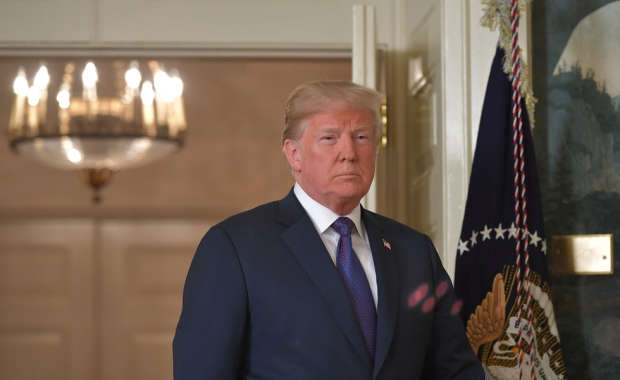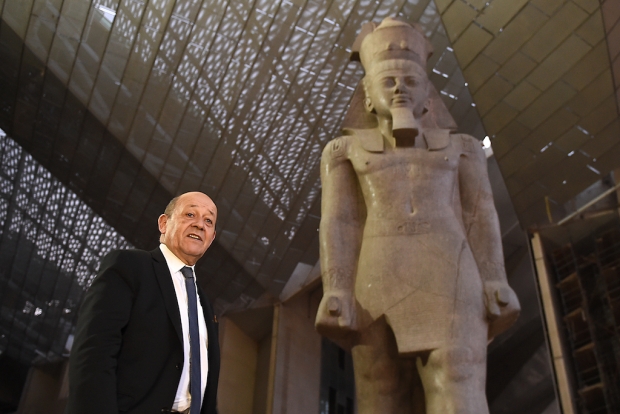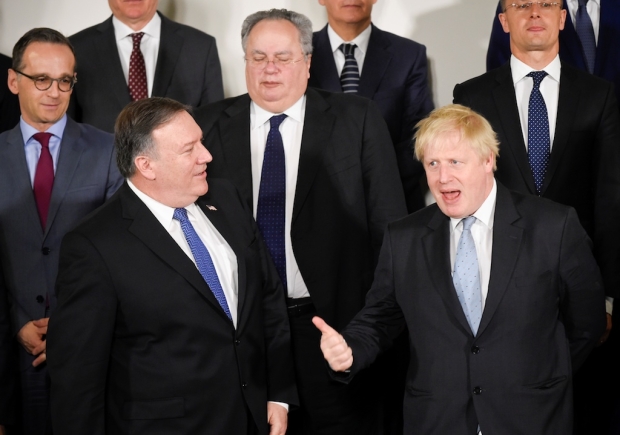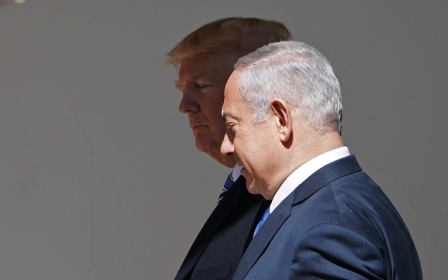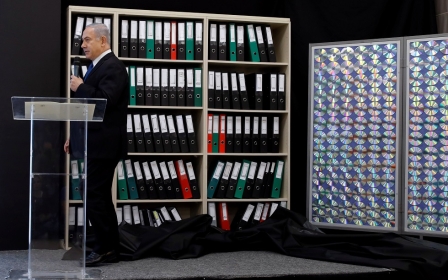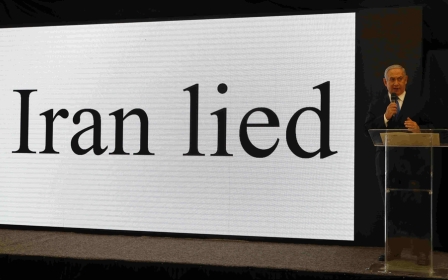Iran nuclear deal: Netanyahu's evidence bombs with signatories
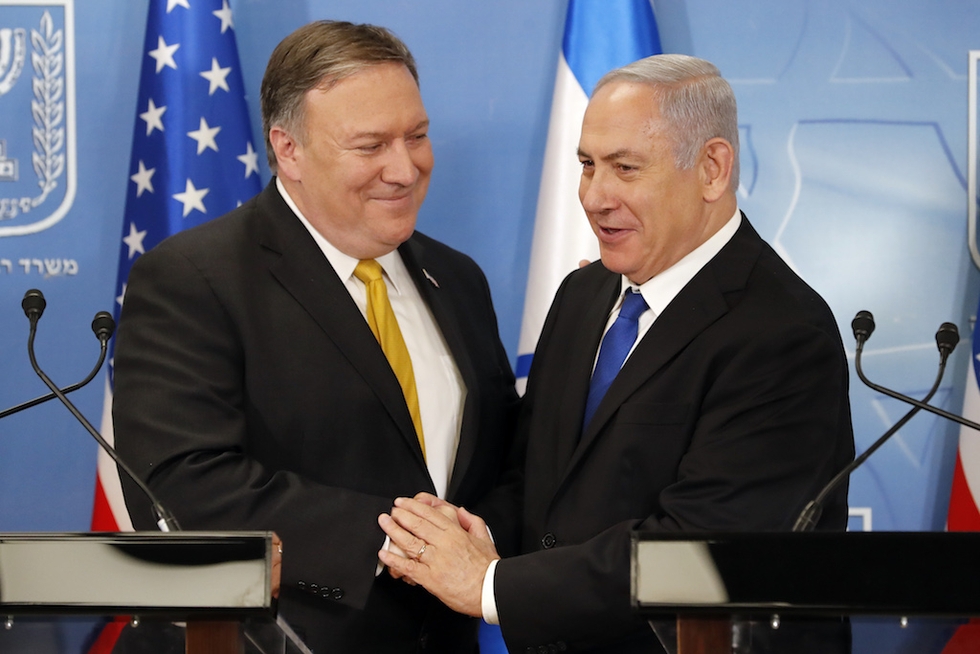
A day after Benjamin Netanyahu unveiled what he had claimed to be damning evidence that Iran was deceiving the international community over its nuclear programme, most signatory states seemed unconvinced the Israeli prime minister's allegations warranted the overhaul of the 2015 nuclear agreement.
Netanyahu said in a televised presentation in English on Monday - largely seen as directed to an international audience - that he had new "proof" of an Iranian nuclear weapons plan that could be activated at any time.
But he did not provide evidence that Israel's main enemy had actively worked to obtain an atomic weapon since 2015.
The International Atomic Energy Agency (IAEA), the UN’s nuclear watchdog, reiterated on Tuesday that it had "no credible indications of activities in Iran relevant to the development of a nuclear explosive device after 2009".
The 2015 nuclear deal negotiated between Iran and six world powers - the United States, Russia, the United Kingdom, France, Germany, China, and the European Union - imposes nuclear inspections on Iran in return for the loosening of economic sanctions.
Besides agreeing to snap inspections Iran also cut the number of centrifuges used for enriching uranium and reduced its stockpiles of the material.
Netanyahu’s accusations came as United States President Donald Trump is set to make an announcement on 12 May regarding whether to pull out of the atomic accord with Tehran.
Almost all the signatories to the JCPOA had reacted to Netanyahu's speech as of Tuesday, the majority of whom expressed renewed commitment to the deal.
United States
Trump appeared receptive to Netanyahu’s allegations, while not revealing more about his upcoming decision on whether to reimpose sanctions on Iran.
“That is just not an acceptable situation,” the American president said in a press conference on Monday.
“We’ll see what happens, I’m not telling you what I’m doing. A lot of people think they know. And on or before the 12th, we'll make a decision.”
“That doesn’t mean I wouldn’t negotiate a new agreement,” Trump added. “But if anything I think what’s happening today and what’s happened over the last little while and what we’ve learned has really shown that I’ve been 100 percent right.”
“This information provides new and compelling details about Iran’s efforts to develop missile-deliverable nuclear weapons,” White House Press Secretary Sarah Sanders said during a press conference following Netanyahu’s speech.
“These facts are consistent with what the United States has long known: Iran had a robust, clandestine nuclear weapons programme that it has tried and failed to hide from the world and from its own people. The Iranian regime has shown it will use destructive weapons against its neighbors and others. Iran must never have nuclear weapons.”
Iran
Iran branded Netanyahu a liar on Tuesday, as foreign ministry spokesman Bahram Ghasemi called the accusations that Tehran lied about its nuclear ambitions "worn-out, useless and shameful".
Netanyahu's comments came from a "broke and infamous liar who has had nothing to offer except lies and deceits," Ghasemi said in a statement.
Iranian Foreign Minister Javad Zarif used social media to mock Netanyahu as "the boy who can't stop crying wolf", dismissing the prime minister's Powerpoint presentation as a "rehash of old allegations already dealt with by the IAEA".
Russia
Netanyahu spoke with Russian President Vladimir Putin following the speech on Monday night, official Russian agency TASS reported.
Both Russia and Iran back Bashar al-Assad’s regime in Syria, where Israel bombed an airbase in February and is suspected to have been behind recent missile attacks on Syrian government-held airbases that reportedly struck several arms depots, including some holding surface-to-surface missiles that Iran was preparing to deploy.
"Vladimir Putin reiterated Russia’s position that the JCPOA, which has a paramount importance in terms of international stability and security, must be strictly observed by all its signatories," the Kremlin said in a statement.
European Union
The European Union said it was unconvinced by Netanyahu’s claims that Iran was breaching the JCPOA.
"I have not seen from Prime Minister Netanyahu arguments for the moment on non-compliance, meaning violation by Iran of its nuclear commitments under the deal," European Union diplomatic chief Federica Mogherini said.
"And again, the deal was put in place exactly because there was no trust between the parties, otherwise we would not have required a nuclear deal to be put in place."
France
Meanwhile, the French government said on Tuesday the new Israeli claims in fact reinforced the importance of the 2015 nuclear deal.
The French foreign ministry said the details needed to be "studied and evaluated", but a spokesperson added that the evidence appeared to confirm what European powers had known for more than a decade and half.
"At first sight, they (the details) confirm that part of the Iranian nuclear programme, as France and its partners stated during the first revelations in the summer of 2002, was not civilian," said the spokesman in a statement received by AFP.
"The pertinence of the deal is reinforced by the details presented by Israel: all activity linked to the development of a nuclear weapon is permanently forbidden by the deal," said the foreign ministry spokesperson.
"The inspection regime put in place by the (UN nuclear watchdog) IAEA thanks to the deal is one of the most exhaustive and the most robust in the history of nuclear non-proliferation," the statement added.
French President Emmanuel Macron and German Chancellor Angela Merkel have urged Trump to stick with the nuclear accord, arguing that it presents the only viable option available to the international community.
United Kingdom
The UK echoed a similar sentiment on the necessity of the nuclear agreement and its exhaustive measures, as a British government spokesperson reportedly said on Monday that "we have never been naive about Iran and its nuclear intentions".
“(The JCPOA) remains a vitally important way of independently verifying that Iran is adhering to the deal and that Iran’s nuclear program is exclusively peaceful,” the spokesperson added.
Foreign Secretary Boris Johnson, however, implied that the JCPOA could be improved upon.
“The Israeli Prime Minister’s presentation on Iran’s past research into nuclear weapons technology underlines the importance of keeping the Iran nuclear deal’s constraints on Tehran’s nuclear ambitions," Johnson said on Tuesday. “The Iran nuclear deal is not based on trust about Iran’s intentions; rather it is based on tough verification, including measures that allow inspectors from the International Atomic Energy Agency unprecedented access to Iran’s nuclear programme.
"That is another good reason for keeping the deal while building on it in order to take account of the legitimate concerns of the US and our other allies."
Germany
Similarly, Germany stressed the need for independent supervision of Iran as part of the existing nuclear agreement.
"It is clear that the international community had doubts that Iran was carrying out an exclusively peaceful nuclear programme," Israeli newspaper Haaretz quoted a German spokesperson as saying. "It was for this reason the nuclear accord was signed in 2015, including the implementation of an unprecedented, thorough and robust surveillance system by the International Atomic Energy Agency."
China
While China did not immediately react to Netanyahu’s speech, the Chinese Foreign Ministry had reiterated the government’s commitment to the nuclear deal as recently as Friday.
"China calls for all related parties to strengthen dialogue and coordination over the situation facing the Iran nuclear deal, to keep the deal intact and treat it seriously," Foreign Ministry spokeswoman Hua Chunying was quoted by official news agency Xinhua as saying.
Middle East Eye propose une couverture et une analyse indépendantes et incomparables du Moyen-Orient, de l’Afrique du Nord et d’autres régions du monde. Pour en savoir plus sur la reprise de ce contenu et les frais qui s’appliquent, veuillez remplir ce formulaire [en anglais]. Pour en savoir plus sur MEE, cliquez ici [en anglais].


